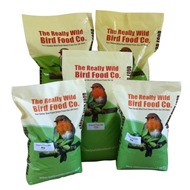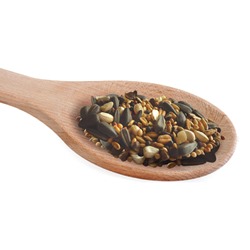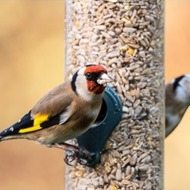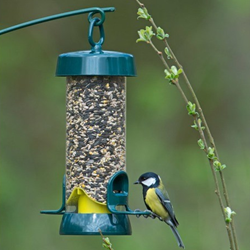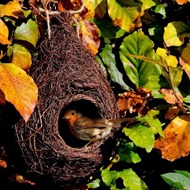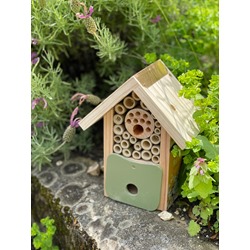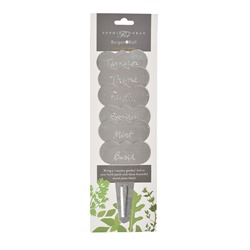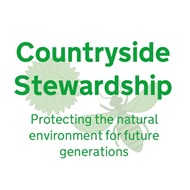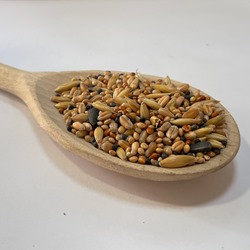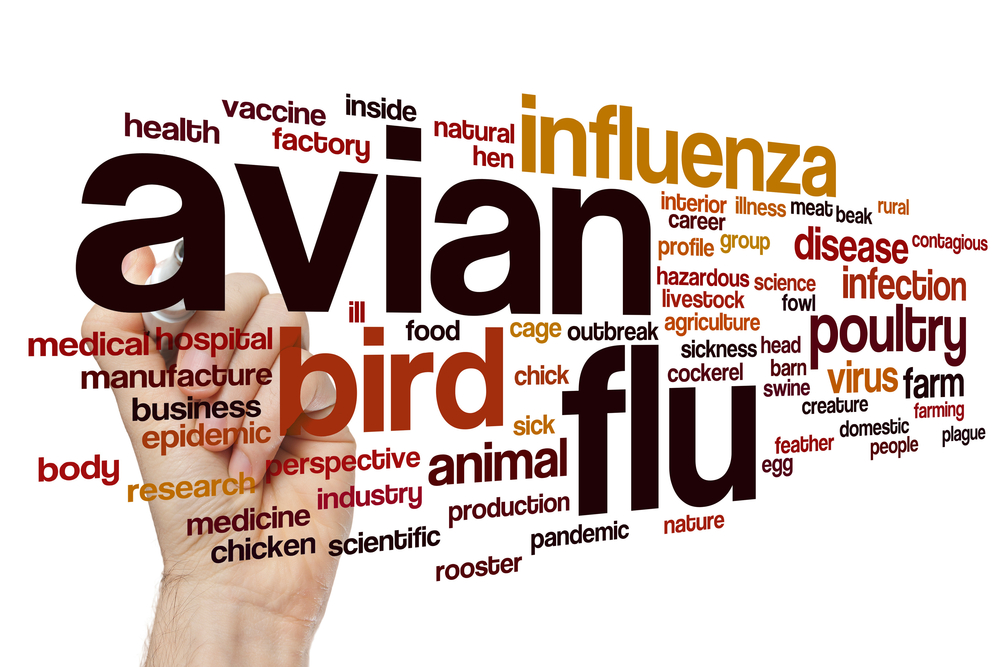
Bird flu ( also known as avian influenza ) is a notifiable, infectious disease that affects both wild birds and kept poultry. It has a significant and devastating effect on birds and can spread extremely fast, making the need for the fast implementation of control measures urgent and important. According to current Government guidelines, "Great Britain (England, Scotland and Wales) is currently in an Avian Influenza Prevention Zone ( AIPZ). This means that "by law, you must follow strict biosecurity measures to prevent the spread of the virus.
Because bird flu is a Notifiable disease, you are legally obliged to report any case of illness which you suspect may be avian influenza in poultry , captive and garden birds. You should report your concerns immediately by calling DEFRA Rural Services Helpline on 0300 0200 301and in Wales it is 0300 303 8268 OR contact DEFRA via their website.
If you find dead birds such as wild waterfowl ( swans, geese, ducks ) or other dead wild birds such as gulls or birds of prey, you should report them to the DEFRA helpline 0n 0345 33 55 77 - option 7.
IT IS VERY IMPORTANT THAT YOU DON'T TOUCH OR PICK UP ANY DEAD BIRDS OR THOSE WHICH ARE VISIBLY SICK. If you do, please make sure you wash your hands immediately with hot soapy water, towel dry thoroughly, and wipe down any surfaces that you have been in contact with, using disinfectant or strong detergent/soap.
All poultry keepers should be extra vigilant and maintain good biosecurity at all times; this is particularly important if you find yourselves in a High Risk Area ( HRA). If you have more than 50 birds on your land, ( 'poultry' includes chickens, ducks, geese, turkey, pheasant, partridge, quail, guinea fowl and peacock ) it is a legal requirement that you register them with DEFRA. If you have fewer, it is not legally required, but I would recommend that you also register them. This will make it easier for DEFRA to contact you in the event of an outbreak.
What are the main signs of bird flu?
There is more than one strain of the influenza virus which causes avian flu but the most pathogenic one ( pathogenic means disease causing) is the HPAI strain and birds infected with this one may show some ( or all ) of the following symptoms;
- sudden death
- swollen head, possibly with closed, runny eyes and the comb and wattles may have a blue tinge
- lethargy and depression, they may be lying down and unresponsive
- lack of coordination; they may be dragging a leg, shaking, wings may be drooping
- eating less than usual, possibly drinking more than normal which may be due to them running a temperature
- twisting of the head and neck
- breathing difficulties such as gaping (mouth breathing), nasal snicking (coughing sound), sneezing, gurgling or rattling
- discoloured or loose watery droppings
- stop or significant drop in egg production
Some species such as ducks, geese and swans can carry the avian influenza virus and spread it without showing any signs of illness, which is why biosecurity is so important.
Birds infected with the less serious strain of bird flu, called low pathogenic avian influenza (LPAI) may not show clear signs of infection. They may have mild breathing problems. These signs can indicate bird flu, but the avian influenza virus can only be confirmed through laboratory tests.
What are the main causes of the spread bird flu in poultry?
There are a few different ways that birds can come into contact with avian flu. It's important that you do the correct things to prevent your birds from coming into contact with the following:
- Wild birds - in particular geese, ducks, swans, gulls, and waterfowl.
- Faeces from other birds that may be infected with the disease.
- Dirty footwear, clothing, vehicles, or equipment that may have come into contact with wild birds or their faeces.
What should I do if I have pet birds?
Whether you have pet ducks, chickens, budgies or parrots - all birds are susceptible to bird flu if they come into contact with contaminated nasal secretions or faeces. It's important to keep pet birds in a secure environment where they can't come into contact with other captive or wild birds.
How to prevent contact with wild birds
Preventing contact with wild birds can be a bit of a challenge, especially if you're used to keeping your birds outside, but there are some simple things you can do to mitigate the risk.
- Keep housing and equipment extra clean.
- Make your environment unattractive to wild birds. For example, you could use a scarecrow or reflective foils and streamers to deter wild birds
- Add a tight mesh covering over access points. The tight-knit mesh will prevent wild birds and pet birds mixing. It will also help to keep contaminants (such as faeces and feathers) away from your bird enclosure.
How to prevent bird flu from spreading to garden birds
If you want to try and limit the spread of bird flu in your garden, anything garden birds come into contact with must be kept clean and hygienic. You should:
- Clean and disinfect hard surfaces, walkways, bird baths and bird feeding stations.
- Prevent birds from drinking standing water.
- Control rodents and pests in your garden.
Handling baby birds
As the nesting season approaches, inevitably we will find some baby birds on the ground. DEFRA have considered the risk and have stated that the risk of risk of avian flu in live Passerine ( perching) birds to be very low. Species considered low risk are
- finches
- sparrows
- tits
- warblers
- robins
- wrens
- swallows
If you find any of these baby birds outside the nest you can either attempt to reunite it with its parents, or take it to local wildlife centre or vet. Please make sure that you wear gloves, or if that isn't possible use a small towel to handle the bird, and you MUST WASH YOUR HANDS THOROUGHLY after handling - even if you did wear gloves.
If you find a dead bird (and particularly if it has webbed feet), you should contact DEFRA on the number above or report it on the DEFRA website.
Keeping bird baths and tables clean
As well as controlling the spread of bird flu, keeping your bird bath and feeders clean can help to reduce the growth of mould and the spread of diseases like salmonellosis. Birds are more vulnerable to all kinds of diseases during the winter months, so this really is an important time of year to keep things clean.
Here at Really Wild Bird Food, we offer a wide range of products that you can use to keep your feeders and tables clean. Our cleaning brushes will help you clean your tube feeders, and our selection of disinfectant sprays and solutions will make your cleaning activities quick and simple. Take a look at some of our best-selling hygiene products below.
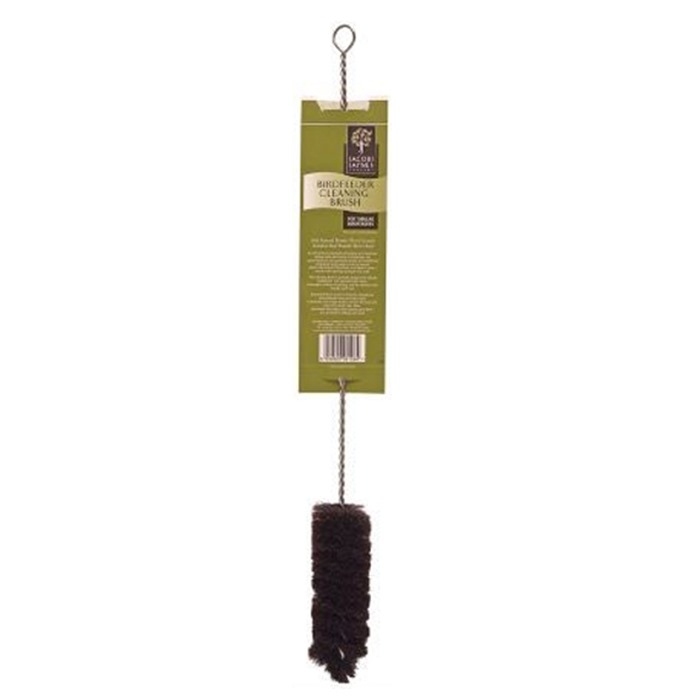
Bird Feeder Cleaning Brush
This narrow cleaning brush is perfect for cleaning tubular bird feeders. The bristles are soft enough that they won't scratch or damage your feeder, and the handle (made of stainless steel) won't tarnish - even with frequent use.
We recommend using this brush and one of our Ark-Klens cleaning products (see below) to clean your feeders once a fortnight.
Buy Now >
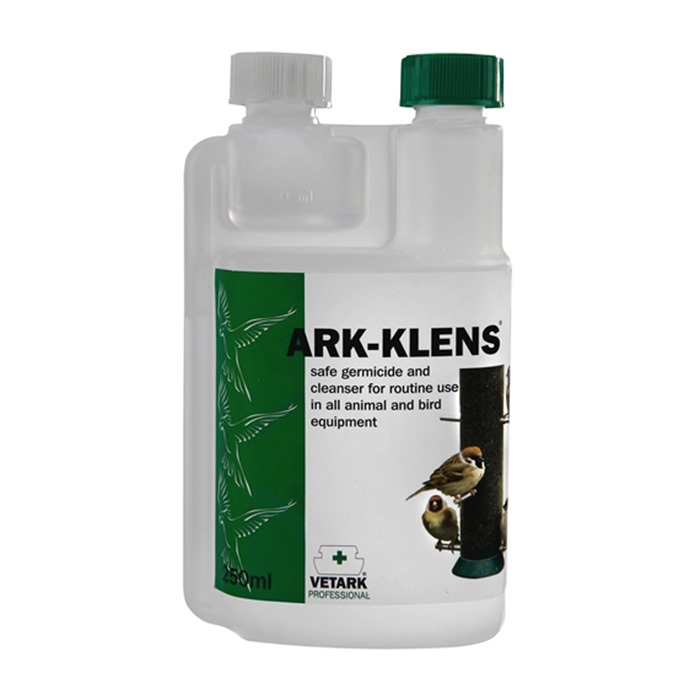
Ark-Klens Disinfectant Cleaner
This disinfectant cleaner contains a blend of quaternary ammonium compounds that have both detergent and deodorising properties. Therefore, it's a great option if you want to clean bird tables or feeders to reduce the spread of bird flu and other seasonal diseases. It is recommended by vets and is available at a really reasonable price.
Buy Now >
If you've been wondering how to protect not only your pet birds but also your wild garden birds from avian flu, we hope you've found this article useful. Please feel free to get in touch if you have any further questions.
 Back
Back Bird Foods
Bird Foods
 Seed Mixes
Seed Mixes Straight Seeds
Straight Seeds Mealworms & Worms
Mealworms & Worms Chicken Feed
Chicken Feed Duck Food
Duck Food Peanuts & Peanut Butter
Peanuts & Peanut Butter Suet & Fat Balls
Suet & Fat Balls No Mess Bird Seed
No Mess Bird Seed Wheat Free Bird Seed
Wheat Free Bird Seed Sunflower Seeds
Sunflower Seeds Softbill Bird Food
Softbill Bird Food Bulk Bird Seed
Bulk Bird Seed Trial Packs
Trial Packs Pick & Mix
Pick & Mix Mini Pick & Mix
Mini Pick & Mix Birdie Basics: Budget Bird Food
Birdie Basics: Budget Bird Food Food for Small Birds
Food for Small Birds Back
Back Bird Feeders
Bird Feeders
 Seed Feeders
Seed Feeders Peanut Feeders
Peanut Feeders Peanut Butter Feeders
Peanut Butter Feeders Suet & Fat Feeders
Suet & Fat Feeders Window Feeders
Window Feeders Hanging Feeders
Hanging Feeders Feeding Stations
Feeding Stations Ground Feeders
Ground Feeders Easy Clean Feeders
Easy Clean Feeders Bird Tables
Bird Tables Seed Trays
Seed Trays Bird Baths & Drinkers
Bird Baths & Drinkers Feeder Accessories
Feeder Accessories Feeder Hygiene
Feeder Hygiene Squirrel Proof Bird Feeders
Squirrel Proof Bird Feeders For the Kids
For the Kids Niger Seed Feeders
Niger Seed Feeders Mealworm Feeders
Mealworm Feeders Bird Food Storage
Bird Food Storage Fat Ball Feeders
Fat Ball Feeders Tube Feeders
Tube Feeders



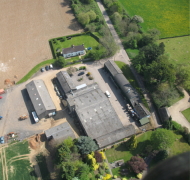 Our Farm
Our Farm
 Tips & Advice
Tips & Advice
Contact Us

